Bakar Fellows Program Selects Seven Projects for Spark Awards

UC Berkeley and UCSF
New treatments for cancer and heart disease and new tools to remove tumors are among seven innovations selected this year to receive a Bakar Fellows Spark Award, which includes funding, resources and mentorship to accelerate translation of faculty-led research to benefit society.
Administered by the Bakar Fellows Program at UC Berkeley, the award was opened this year to UC San Francisco faculty members who are collaborating with Berkeley faculty, in an effort to encourage innovation in healthcare technology.
The program assists fellows in introducing discoveries to the market by providing research support and immersion in an entrepreneurial environment on campus that ideally will lead to new intellectual property — invention disclosures or patent applications, for example — or new licensing agreements, industry partnerships, or even a new company.
In the 11 years since its inception, the Bakar Fellows Program has spawned more than 15 startup companies based on Berkeley research.
The seven Spark Award projects, four of which include UCSF faculty as co-investigators, are described below.
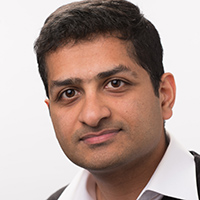
UC Berkeley
Building trust in a trustless world
Sanjam Garg is taking on a challenge in cryptography that he hopes will produce the next-generation zkSNARKs, which are often used in cryptocurrency transactions. They allow a prover to generate a small digital certificate of the correctness of a potentially very expensive computation without revealing secrets about how it was performed. Today, zkSNARKs — short for Zero-Knowledge Succinct Non-Interactive Argument of Knowledge — are slow and use lots of computer memory. Garg, a Berkeley associate professor of electrical engineering and computer sciences (EECS) and a senior scientist at NTT Research, sees lots of room for improvement.
Soft, endoscopic robots
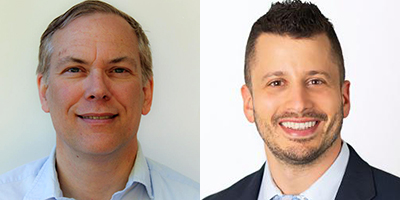
UC Berkeley and UCSF
Current endoscopic surgical tools cannot navigate tortuous anatomical paths, which makes certain types of surgeries more difficult, often requiring extensive tissue removal, general anesthesia and a full operating room. Ezequiel Goldschmidt, a UCSF assistant professor of neurological surgery, teamed up with Ronald Fearing, a Professor of the Graduate School in Berkeley’s Department of Electrical Engineering and Computer Sciences, to produce a soft, deformable robot capable of visualizing and freely navigating in complex environments within the body in a way that minimally disturbs surrounding tissues. They hope the device will expand the capabilities of many types of complex endoscopic surgical procedures.
Democratizing crop improvement
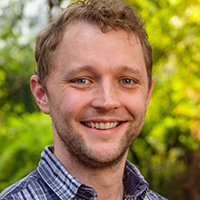
One of the biggest bottlenecks to improving crops today is overcoming barriers to plant tissue and organ regeneration, so that whole plants can be grown from a few engineered or gene-edited cells. Ben Williams, a Berkeley assistant professor of plant and microbial biology, is hoping to help plants regenerate by manipulating epigenetic pathways that control cell identity in plants. His ultimate vision is to democratize crop improvement by developing technologies that enhance crop improvement without requiring sophisticated expertise, equipment or expensive materials, thus helping to address the impacts that global climate change will have on agriculture and environments around the world.
New therapies for heart disease
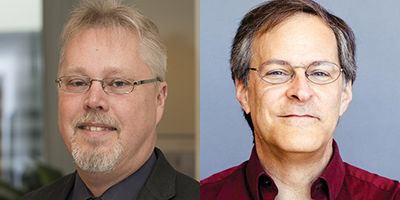
UC Berkeley and UCSF
Anders Näär, a professor in Berkeley's Department of Nutritional Sciences and Toxicology, and cardiologist Matthew Springer, a professor of medicine at UCSF, propose to develop a commercially viable therapy for three forms of cardiac disease: heart failure, smoking-related cardiac dysfunction and Barth Syndrome cardiomyopathy. They plan to combine Springer's decades of experience applying cellular, genetic and drug therapeutic approaches to cardiovascular diseases with Näär's discoveries about several microRNAs (miRNAs) that are crucial regulators of cholesterol and lipid homeostasis and of whole animal metabolism. The combined approach could have important ramifications for the treatment of cardiometabolic diseases, a group of common but often preventable conditions that includes heart attack, stroke, diabetes, insulin resistance and non-alcoholic fatty liver disease.
Gel protection during tumor ablation
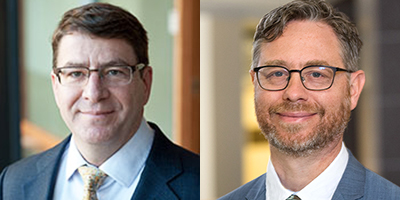
UC Berkeley and UCSF
Some tumors can be eliminated by threading a device through the skin to the tumor and using heat to destroy them. While water jets, so-called hydrodissection, can be used to separate and protect nearby healthy tissue, Miles Conrad, a clinical professor of radiology at UCSF, and Phillip Messersmith, a professor and chair of bioengineering at Berkeley, hope to improve hydrodissection by using hydrogels. These lightweight materials are biocompatible and biodegradable, easily injectable and mechanically strong enough to displace tissues. They're also highly viscous and resistant to dissipation away from the deposition site. These qualities could make them ideal for improving the safety of percutaneous thermal ablation and provide a minimally invasive alternative to surgical removal of malignant tumors.
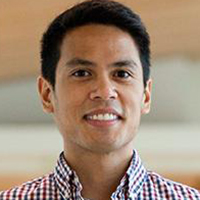
UC Berkeley
CRISPR epigenetic editing for cancer immunotherapy
James Nuñez, an assistant professor of molecular and cell biology, is pioneering new CRISPR tools that can be used to edit the epigenome — the genes that control other genes — without also inducing potentially harmful DNA breaks in human cells. He hopes that these tools can turn off genes in human immune cells to allow more persistent anti-tumor killing activity. Nuñez plans to use recent advances in mRNA therapeutics to deliver the CRISPR tools into primary immune cells for use in cancer immunotherapy applications, though the epigenetic editing technologies could also be useful in silencing genes responsible for other types of diseases.
Improved therapies using targeted protein degradation
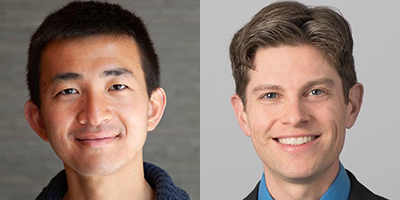
UC Berkeley and UCSF
Targeting proteins for natural degradation inside the cell is a potentially powerful therapeutic strategy for ridding the body of deleterious proteins. But current methods are largely limited to proteins inside the cell. Many cancer and immunological targets are located on the cell membrane and are harder to degrade with current methods. Cardiologist John Chorba, a UCSF assistant professor of medicine, found a natural degradation signal for surface proteins and is teaming up with Ziyang Zhang, a Berkeley assistant professor of chemistry and chemical biology, to leverage this natural mechanism into a small molecule-based platform for targeted protein degradation of a broad range of cell surface and extracellular proteins associated with disease.
